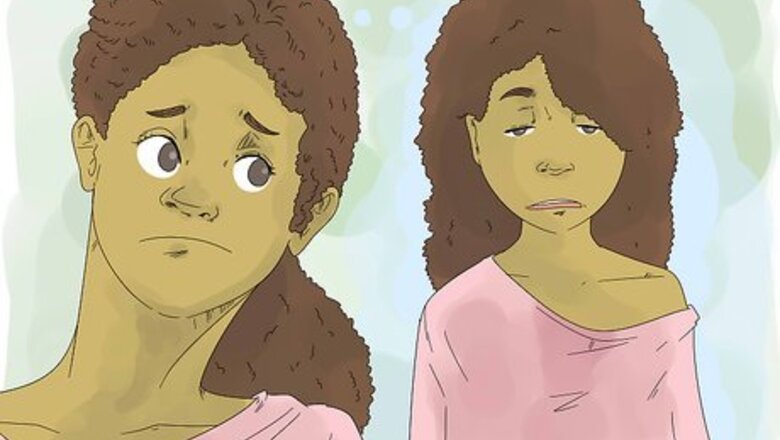
views
Preparing to Stay Up All Night
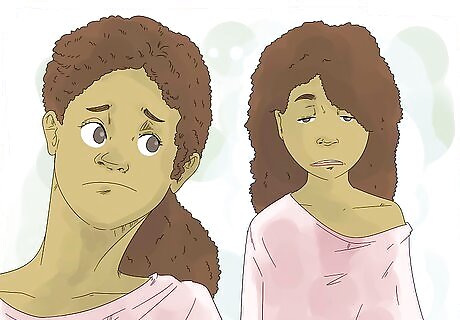
Understand how the body will respond to losing sleep. At about 24 hours after your normal wake up time, the body is likely to hit a wall, and you will feel most tired. Experts say this is because of the body’s normal internal clock. That’s called your circadian rhythm. It means that you might feel more tired at the 24-hour mark of no sleep than you will at, say, the 30-hour mark. Your body clock will give you periodic second winds. The body basically triggers a wake up signal in your brain that will give you a boost despite sleep deprivation. There are things you can do to trick the body into waking up.
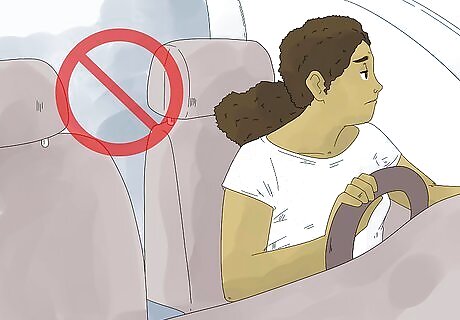
Ensure your safety while tired. If it’s absolutely necessary for you to pull an all-nighter, make sure you do it in a safe way. Realize, though, that depriving the body of sleep is not good for the body. It releases cortisol into the body, which is the stress hormone. Don’t drive if you’ve stayed up all night. It can be exceptionally dangerous to yourself and other drivers. Studying all night also has been associated with lower grade-point average. So develop strategies so you don’t have to do it in the future. Be aware that staying up all night will affect your body in several other ways that could be dangerous. It might make you forget things and slow your reaction times. People who are deprived of sleep are more likely to perform worse at multi-tasking, indicating there is a decline in memory ability. Longer term sleep deprivation has been associated with a slew of negative affects on the body, such as weight gain, mood instability, and muscle fatigue. So if you end up going without sleep, make sure you give your body a chance to catch up. It's not a good idea to do this as a habit.
Keeping the Body More Alert
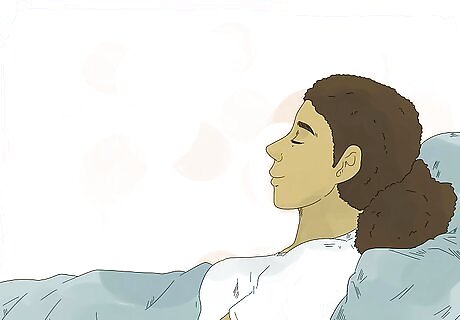
Take a short nap during the night or right before it starts. Okay, this isn’t exactly staying up all night, but taking a nap for even a few minutes can improve performance and minimize signs of sleepiness. Even a little shut eye can help you stay up for the rest of the night. One study found that people did better with just a 26-minute nap. So shut your eyes for just a little bit, and you should find it easier to make it through the entire night and next day. The key here is to take a short nap because otherwise you could end up in a deep sleep, which is very hard to wake out of. You could also sleep a little bit longer the night before you know you will be up all night. The body will “bank” the sleep, and it will be easier to get through the stretch of sleeplessness without it.
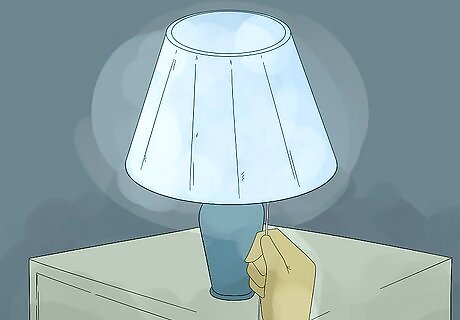
Make sure the lights are on and bright. Your body clock is actually aware of changes in light and darkness, and you will feel more awake in the light. The body clock is linked physically to the eyes. If you’re super tired the next day, go outside. The sunlight will also function to wake your body up more. The darkness causes the body to produce melatonin, which is the sleep hormone. People’s instinct is often to turn down the lights at night, but that’s probably going to make you more sleepy as the body perceives it’s time to call it a night. Turning the lights higher than normal will trick the body.
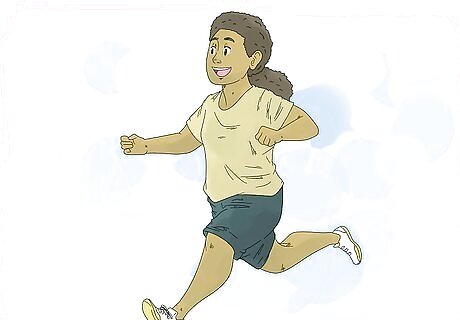
Stay busy, and move. The brain is going to be more alert after you move a bit. If you don’t have time to exercise, you could just engage in a conversation, wash the dishes – do something to focus your body on a new action for a time. Changing an activity also might wake the body up more. The body will become more alert to compensate for the new activity. The body feels less tired when you’re busy because it will focus on the task instead of the lack of sleep. Mental activities also may help you stay awake by keeping your focus on something other than the fact you're tired. So try playing a game. Some mental activities, like reading a book, may make you more sleepy, though, especially if you do them while lying down. You could listen to a talking radio show though.
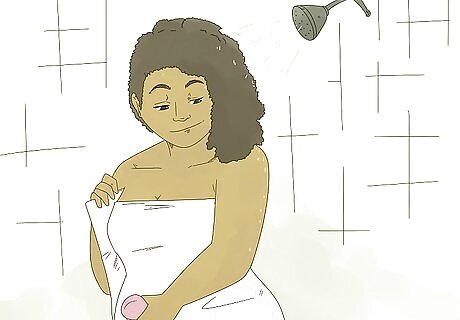
Cool down the room. The body temperature naturally lowers during sleep, so people sleep better when it’s colder. However, a hot room is probably going to make you feel drowsy. Other ways to trick the body into feeling more wakeful include taking a cold shower and getting dressed up for your day. In addition to turning down the room temperature, you could also open a window. The breeze should help you stay awake, in addition to the lower temperature (if it's cool outside).
Eating and Drinking to Stay Awake
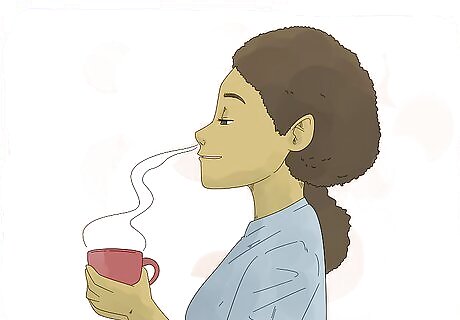
Drink some caffeine during the night. Coffee or an energy drink will give you the boost you will need to make it through the night. However, don’t guzzle it down all at once. It can help you stay more alert if you space it out throughout the night. Some studies show caffeine can increase your focus. Most people need about a 5-ounce cup of coffee or caffeinated beverage to get the necessary boost. That’s about 100 milligrams of caffeine. Caffeine will wear off in a couple hours, and it takes about a half hour for you to feel its effects. You can also find caffeine pills in 100 or 200 mg doses that you can buy across the counter. Be aware that drinking a lot of caffeine can also make you jittery and have some side effects. When you stop drinking the caffeinated beverage, your body might crash, making you feel extra tired. If you don't drink coffee, eat apples. They have enough sugar to keep you awake.
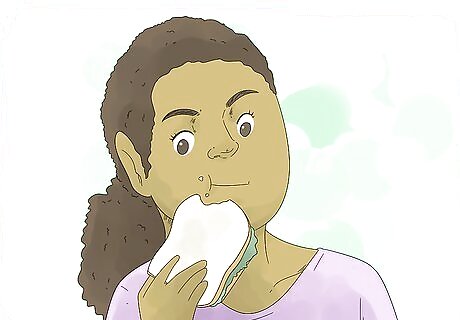
Eat high-energy foods to give your body a boost. Some foods will give you more of an energy boost than others. If you’re pulling an all-nighter, you need to give your body some fuel. So don’t skip meals. Eat something that has protein, fiber, or complex carbs in it. For example, a sandwich with a glass of milk or granola with fruit are good choices. You should also drink a lot of water. Staying hydrated is a natural energy boost. Whole grains, tuna fish, mushrooms, nuts, eggs, chicken and beef are also high-energy feeds. Empty calorie junk food filled with sugar could set you up for a sugar crash, so the energizing effects are too temporary.
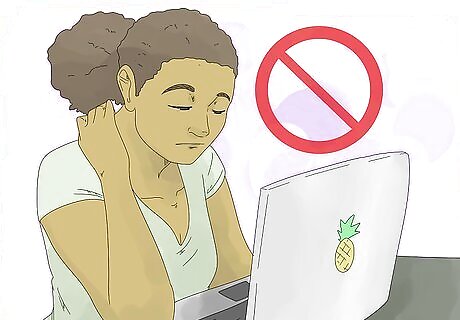
Avoid things that will make you more tired or are dangerous fixes. Choose natural ways to stay up all night, not ways that could put you at risk. Be very careful what you put into your body. Although teenagers probably shouldn’t be drinking it anyway, (unless they’re of legal drinking age for their area), drinking alcohol causes drowsiness. Don’t use drugs that are regularly prescribed as stimulants to pull an all-nighter. It’s not worth damaging your body or taking the risk. Such behaviors can be exceptionally dangerous and even illegal.

Develop better habits so you don’t have to stay up all night. Sometimes it’s unavoidable (a one-time thing). However, organizing your life differently may ensure you don’t have to do it regularly. Work on study habits. People get overwhelmed when they think of everything they have to do at once. Create a checklist. Set aside a certain amount of time to study at the same time each day, so you get into a routine. Research shows that teenagers’ sleep habits are different than those of adults. Young people's bodies might tell them to go to stay awake later. This is a natural occurrence. Clearing your mind by getting off the computer, smartphone or video games will help.



















Comments
0 comment